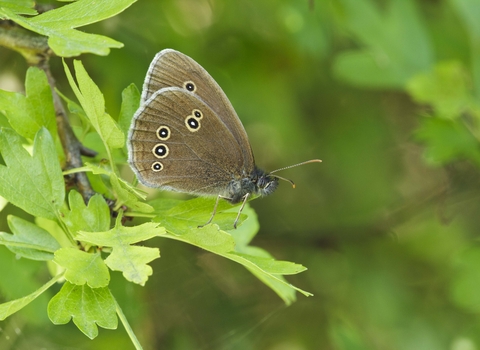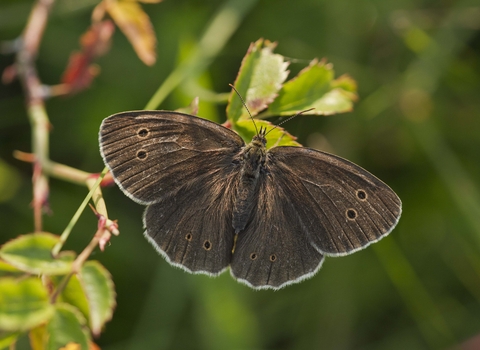
Ringlet ©Guy Edwardes/2020VISION

Ringlet ©Guy Edwardes/2020VISION
Ringlet
The ringlet gets its name from the small rings on the undersides of its wings. These rings show variation in the different forms of this species, even elongating into a teardrop shape.
